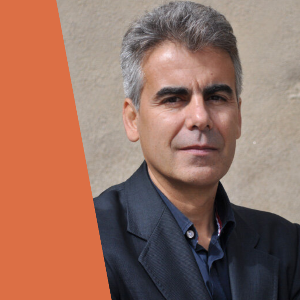
Prof. Dr. Jean-Luc Starck
We are thrilled to invite you to the upcoming Munich AI Lecture featuring Prof. Dr. Jean-Luc Starck, CosmoStat laboratory at the Institute of Research into the Fundamental Laws of the Universe, Département d'Astrophysique, CEA-Saclay, France. The lecture is organized by Prof. Dr. Gitta Kutyniok, Bavarian AI Chair for Mathematical Foundations of Artificial Intelligence and co-hosted by Prof. Dr. Jochen Weller, with support of BAIOSPHERE, the Bavarian AI Network. The event will take place on Tuesday, 18. February, 2025 from 17:00 pm to 18:30 pm in the Senatssaal, Geschwister-Scholl-Platz 1.
Prof. Starck will speak about "Unveiling the Cosmos: Deep Learning Solutions to Inverse Problems in Astrophysics," how inverse problems in astrophysics, such as image reconstruction or gravitational lensing data analysis, have traditionally relied on sparsity-based techniques to recover underlying physical structures from incomplete or noisy data. Deep learning methods are now replacing these classical approaches, offering unprecedented performance gains in accuracy and efficiency. Despite their success, deep learning methods introduce new challenges, including interpretability, generalization across diverse astrophysical scenarios, and robustness to observational biases. In this talk, we will explore the transition from sparsity-driven methods to deep learning-based solutions, highlighting both the opportunities and pitfalls of this paradigm shift. We will discuss recent developments, applications to astrophysical data, and future directions for addressing the emerging challenges in this rapidly evolving field.
This event is open to everyone; registration is not required.
About the speaker: Jean-Luc Starck
Jean-Luc Starck is Director of Research and head of the CosmoStat laboratory at the Institute of Research into the Fundamental Laws of the Universe, Département d'Astrophysique, CEA-Saclay, France. Jean-Luc Starck has a Ph.D from Nice Observatory and an Habilitation from University Paris XI. He was a visitor at the European Southern Observatory in 1993, at UCLA in 2004 and at Stanford’s Department of Statistics in 2000 and 2005. Since 1994, he is a tenured researcher at CEA. He created in 2010 the CosmoStat laboratory and is strongly involved in the Euclid ESA space mission. He is Honorary Fellow of the The Foundation for Research and Technology – Hellas (FORTH) since 2022.
He received the EADS prize of the French Academy of Science in 2011, the International Astrostatistics Association (IAA) Fellow Prize in 2016, the 2018 Gruber Price in Cosmology (as member of the ESA Planck team), the European Astronomical Society Tycho Brahe medal in 2022 and the Space Foundation 2024 Space Achievement Award (as member of the ESA Euclid Consortium).
Over the last 15 years, he has been involved as Co-I or PI in the management of 11 million euros of grants from national, European and international sources, including a senior ERC. He has published over 250 refereed papers in astrophysics, cosmology, signal processing and applied mathematics, and he is also author of three books. He is member of the Academia Europaea since 2021.
